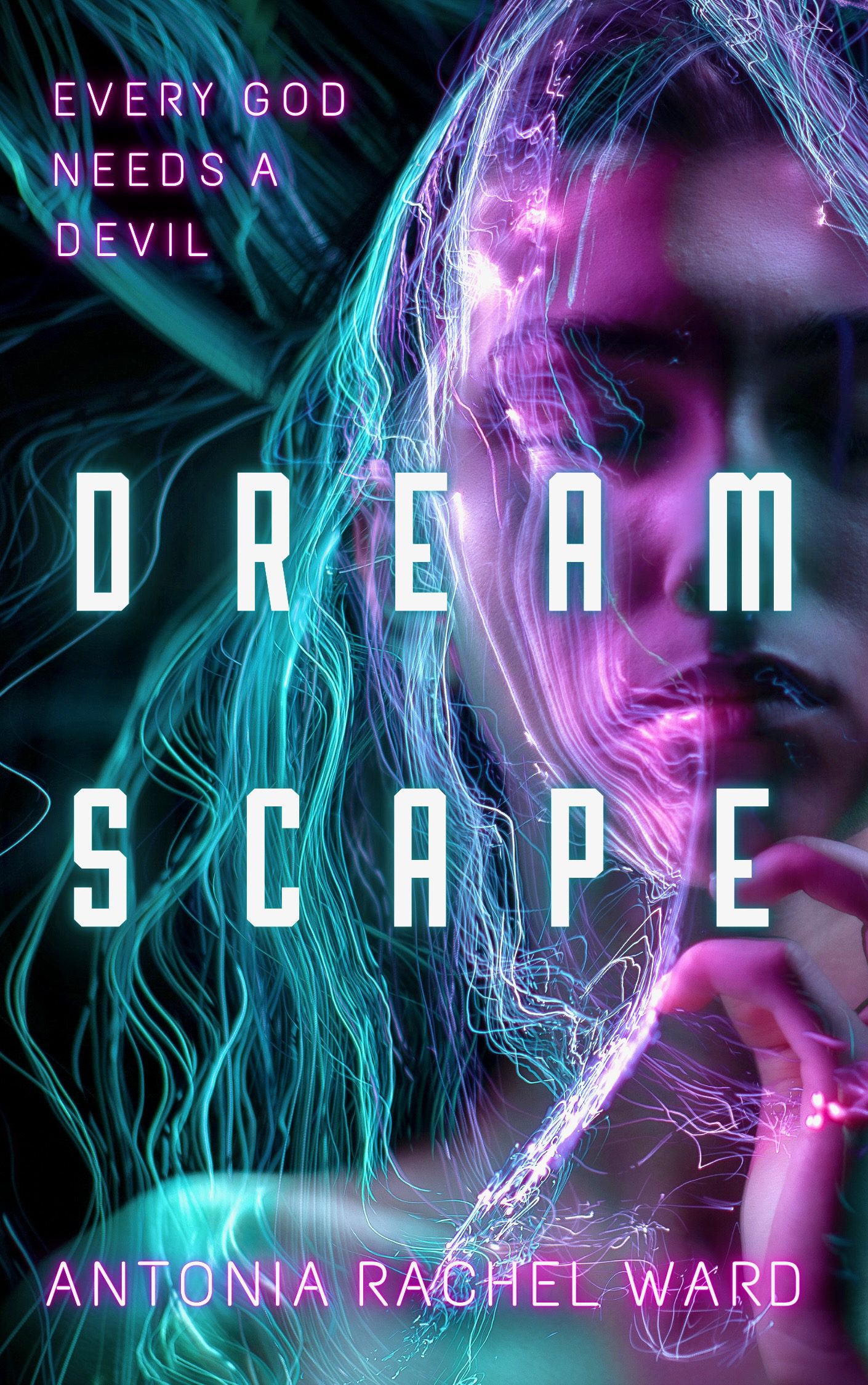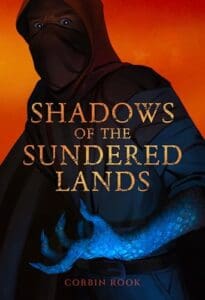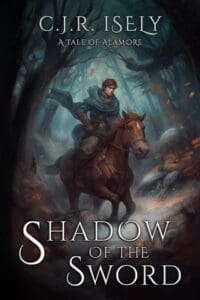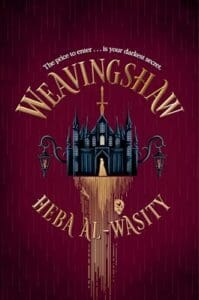
Synopsis
If you fall deep enough down the rabbit hole, how will you even know when you’ve made it out?
When teenage runaway Wren Silver’s little sister gets lost in the DreamScape, a virtual world so addictive its use has been outlawed, the prognosis is bad. Nobody who’s fallen into a coma while using the DreamScape has ever recovered. Realising her only chance to save her sister is to venture in after her, Wren logs into the DreamScape to discover a bizarre, lawless world presided over by two self-proclaimed ‘gods’. Convinced one of them has captured her sister and is using her in his attempt to attain immortality, Wren must seek the help of a cult acolyte and an elusive rock star in order to unmask the god’s true identity before her sister is lost for good.
Review
I first became aware of Antonia Rachel Ward’s writing earlier this year with the engagingly fun B-movie sci-fi horror romp (and contender for 2023’s best title) Attack of the Killer Tumbleweeds, which, while its tongue was firmly in cheek, also delivered some refreshingly honest character moments, giving a strong heart to an imaginative sci-fi premise. Well imagine my delight to discover that with DreamScape, Ward’s first full novel, lightning has struck twice, but this time the potent mix of horror and heart is amped up tenfold, producing a marvellously dark, thematically rich tale that combines a surreal cyberpunk techno thriller gothic horror with a compellingly toxic love triangle at the centre.
The set-up here isn’t anything particularly new: in a near future, there is a virtual world called DreamScape, where you can live out your perfect gaming fantasy life as an avatar of your choice without the pesky boundaries of real life. So far, so Ready Player One/Tron, etc. But where the, if not unique, but still refreshing twist comes in is that this is a virtual reality world in tatters: its commercial arm was abandoned after its owner died, and now it’s illegal, thanks to the tendency of its users (or “Scapers”) to get addicted to it. Some even lose their consciousness in its crumbling edifices, leaving them in a coma in the real world, a chilling concept that Ward employs with aplomb. In the remains of DreamScape, two competing “Gods” appear: Hypnos and Thanatos, and they both have plans for the future of this world…
Further joy comes from spotting the other influences: you take a red pill to help you enjoy DreamScape even more (Matrix); everyone has Greek myth names like Delphi and Apollo (kind of Matrix), you can essentially get lost in limbo (Inception) and buildings defy physical moorings (more Inception – ok, so maybe this is less Ward and me liking the Matrix and Inception too much, what do you want from me?).
But don’t get the wrong idea; this is not merely derivative, for Ward has created her own mix of surrealist imagery to go with the sci-fi vibes. One particularly creepy scene sees a bunch of avatars, minds lost, in a sea of surreal psychedelic costumes, all desperately calling out for attention; abstract surrealist horror ensconced in a cyber-thriller set up. The imagination is joyous here:
Whole skyscrapers had sprung up made entirely of neon, blinking and sparkling and twisting into ludicrous shapes in their effort to draw the eye.
Other architects had constructed traps for their prey: pavements that turned into slippery slopes to force people into bars and clubs; or sticky patches that froze them in place in front of a stall. Some buildings rearranged themselves as they sensed pedestrians approaching, erecting new walls or curling over the sidewalk in an attempt to funnel people towards their light-framed doorways.
So that’s the setup, what of the characters? There’s teenage girl Wren Silver – character name of the year, don’t fight me on this – and her sister Beth; Beth is lost in the DreamScape, her body in hospital, her mind who knows where. Feeling guilty about having left Beth alone with her mother and abusive stepfather to flee to the States, seeking her own freedom, Wren’s desperation to save her sister is compelling. But not as compelling as the story of Lia, a successful ballet dancer newly married to a handsome, charming TV star. Problem is, Lia’s ex, the needy, narcissistic rock icon Erik Draven, isn’t going to let her get away. But is her new beau all he’s cracked up to be?
For a while it’s not clear how this classic romance set-up with dark, toxic Gothic vibes hanging round it has any connection to the cyber punk dream weirdscape going on around it; but I didn’t care. This subplot is immediately compelling; a lesson on narcissism and toxicity (but not the way you think at first) and somehow doesn’t take away from the wider plot at all. I could’ve had a whole book on this to be honest; Ward writes these relationship dilemmas fiendishly well, with an honest feeling to them:
“Sometimes I’m afraid you’re just a dream.”
That was what Erik used to say to Lia, in that twilight between sleeping and waking.
“Sometimes I’m afraid you’re just a dream.”
Perhaps that was the most hurtful thing of all. That he couldn’t even be sure she was real
But it’s when these storylines and Wren’s converge that you see the thematic juiciness of this novel. This is a story about how even in a virtual world designed for complete freedom, humans still have to worship idols – and how compellingly this mirrors relationships, too. It’s also about how reality can seem a poor second to a fantasy one, but trying to keep a hold of the real you might not be as easy as you want if you ever got your virtual wish (this hit home for me as someone who has never felt comfortable in the real word and desperately wanted to lose myself in fantasy ones since a kid – are you with me, fellow nerds?) I’m sure there’s more layers I haven’t spotted – this book begs a re-read. Ward doesn’t bash your head with her message but, like the Oracle one of her characters is named after, she leads you down the path – and when certain characters give certain speeches then, if you’ve been paying attention, the reward is great.
Finally, a quick word on the prose. Ward writes the kind of clear, rhythmic, clean prose that you can fly through while simultaneously being gorgeous or detailed or poetic when it wants to be. This is not an easy trick to pull off (most authors sit on one side or the other), but it makes for a very satisfying read.
Overall, there’s just something about the combination of surrealist sci-fi ideas on reality with a romance about toxic relationships that I just loved. A perfect marriage – in a book about a creepily imperfect one. If this weaving of big and small is something you want, you are going to love this book. And even if it’s not, it’s Inception and Tron and The Matrix and Alice in Wonderland with gothic vibes, so you’re still going to love it anyway. A special, rich book by a writer you really need to be paying close attention to. Ward went for broke with this, and the result is joyous.









Excellent review I’m in
Good to hear!